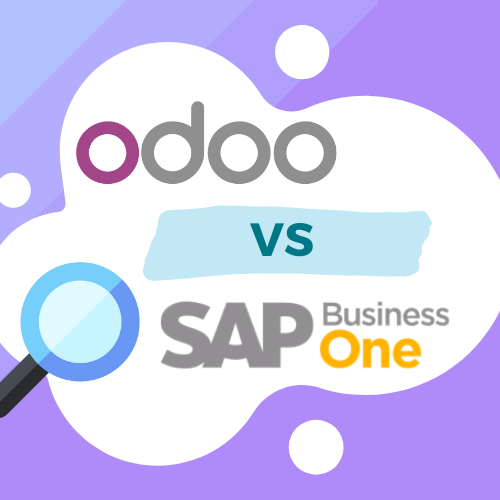
SAP VS ODOO ERP
In the world of enterprise resource planning (ERP) systems, Odoo and SAP are two well-known names. Both Odoo and SAP provide comprehensive solutions for managing various business processes, including finance, human resources, sales, marketing, and more. However, there are some significant differences between the two that may make one more suitable for your business needs than the other. In this blog post, we will compare Odoo and SAP to help you make an informed decision about which ERP system is right for your business.
Odoo ERP:
Odoo is an open-source ERP system that offers a wide range of features and functionality for businesses of all sizes. One of the main advantages of Odoo is its flexibility, which allows users to customize the system to fit their specific business needs. Odoo is also highly modular, meaning that users can pick and choose which modules they want to use and can add new modules as their business grows. Additionally, Odoo is known for its user-friendly interface, which makes it easy for even non-technical users to navigate and use.
SAP ERP:
SAP is a well-established ERP system that has been around for several decades. SAP provides a comprehensive suite of modules for managing various business processes, including finance, human resources, logistics, and more. One of the main advantages of SAP is its scalability, as it is designed to handle large volumes of data and transactions. Additionally, SAP is known for its robust reporting capabilities, which allow users to generate detailed reports on various aspects of their business.
Comparison:
Cost: One of the main differences between Odoo and SAP is cost. Odoo is an open-source system, which means that the software is free to use. However, users will still need to pay for hosting, customization, and support services. SAP, on the other hand, is a proprietary system, which means that users will need to purchase licenses and pay ongoing maintenance fees.
Flexibility: Odoo is known for its flexibility and modular design, which allows users to customize the system to fit their specific business needs. SAP, on the other hand, is more rigid and less customizable.
Scalability: SAP is designed to handle large volumes of data and transactions, making it a better choice for larger businesses. Odoo can also handle large volumes of data, but may not be as scalable as SAP.
User Interface: Odoo has a user-friendly interface that is easy for non-technical users to navigate and use. SAP, on the other hand, has a more complex interface that may require more training for users to master.
Reporting: SAP is known for its robust reporting capabilities, which allow users to generate detailed reports on various aspects of their business. Odoo also has reporting capabilities, but may not be as comprehensive as SAP.
Conclusion:
Both Odoo and SAP offer comprehensive ERP solutions for businesses of all sizes. The choice between the two will largely depend on your specific business needs and budget. If you're looking for a flexible, modular system that is easy to use and customize, then Odoo may be the right choice for you. If you need a system that can handle large volumes of data and transactions and has robust reporting capabilities, then SAP may be the better choice. Ultimately, it's important to carefully evaluate both systems and choose the one that best meets your business needs.